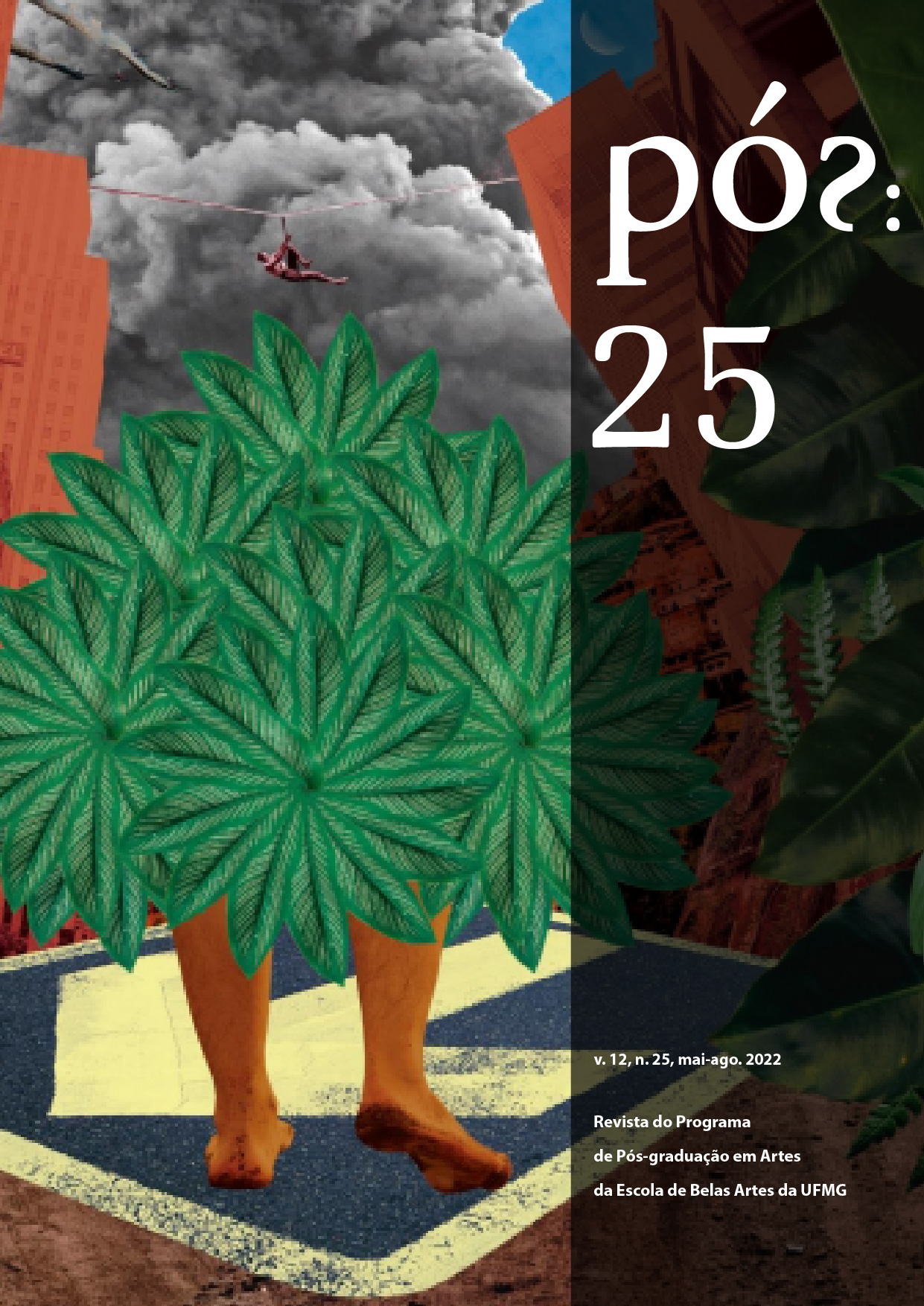The possible Influences from Absurd Theatre in Bang Bang, by Andrea Tonacci
DOI:
https://doi.org/10.35699/2237-5864.2022.35778Keywords:
Absurd Theatre, Marginal Cinema, Andrea Tonacci, Bang BangAbstract
This paper tries to detect the influences of what was considered Absurd Theatre in the cinematographic work Bang Bang, by Andrea Tonacci. To do that, it is done a comparative study between Bang Bang and some of the main works and/or characteristics of Absurd Theatre. At the end of this paper, it is presented the points where they are in conversion and those where they are divergent.
References
Referências
ALBEE, E.; KOLIN, E. Conversations with Edward Albee. Jackson: University Press of Mississippi, 1988.
BANG Bang. Direção: Andrea Tonacci. São Paulo: Total Filmes, 1971. (93 min).
BURKMAN, Katherine H. The Dramatic World of Harold Pinter: its basis in ritual. Columbus: Ohio State University Press, 1971.
ESSIF, Les. Empty Figure on an Empty Stage: the theatre of Samuel Beckett and his generation. Bloomington: Indiana University Press, 2001.
ESSLIN, Martin. Teatro do Absurdo. Trad. Barbara Heliodora e José Roberto O’Shea. Rio de Janeiro: Zahar, 2018.
FERREIRA, Jairo. Cinema de Invenção. São Paulo: Editora Max Limonad Ltda., 1986.
GOMES, Hélder. Teatro do Absurdo. 23 dez. 2009. Disponível em: http://edtl.fcsh.unl.pt/encyclopedia/teatro-do-absurdo/. Acesso em: 1 jul. 2020.
GOMES, Paulo Emílio Salles. Os exibidores se esqueceram desse filme. Jornal da Tarde, São Paulo, 21 abr. 1973.
KANE, Leslie. The language of silence: on the unspoken and the unspeakable in modern drama. Vancouver: Fairleigh Dickinson Press, 1984.
PINTER, Harold. The Birthday Party and The Room: Two Plays. New York: Grove Press, 1994.
PINTER, Harold. The Caretaker. New York: Dramatists Play Service, 1991.
PLANETA dos macacos. Direção: Franklin J. Schaffner. Estados Unidos: Twentieth Century Fox, 1968. (112 min).
PUPPO, Eugênio; HADDAD Vera. Cinema Marginal e Suas Fronteiras: filmes produzidos nas décadas de 60 e 70. São Paulo: Centro Cultural Banco do Brasil, 2001.
RAMOS, Fernão. Cinema Marginal (1968-1973): a representação em seu limite. São Paulo: Brasiliense, 1987.
RAMOS, Fernão (org.). História do Cinema Brasileiro. São Paulo: Art Editora, 1987.
XAVIER, Ismail. Alegorias do Subdesenvolvimento. São Paulo: Brasiliense, 1993.
Obras literárias e teatrais mencionadas neste trabalho:
A cantora careca, de Eugène Ionesco, 1950.
Amédée ou como se desembaraçar dele, de Eugène Ionesco, 1954.
As cadeiras, Eugène Ionesco, 1952.
As criadas, de Jean Genet, 1947.
As empregadas, de Jean Genet, 1947.
De volta para casa, de Harold Pinter, 1965.
Esperando Godot, de Samuel Beckett, 1952.
Festa de aniversário, de Harold Pinter, 1958.
Fim de jogo, de Samuel Beckett, 1957.
Hamlet, de William Shakespeare, 1603.
O matador, de Eugène Ionesco, 1959.
O porteiro, Harold Pinter, 1960.
O quarto, de Harold Pinter, 1957.
Rosencrantz e Guildenstern estão mortos, de Tom Stoppard, 1966.
The Importance of Being Earnest, de Oscar Wilde, 1895.
Travestis, de Tom Stoppard, 1974.
Downloads
Published
How to Cite
Issue
Section
License
Copyright (c) 2022 Fliblio Ferreira de Souza

This work is licensed under a Creative Commons Attribution-NonCommercial 4.0 International License.
Authors who publish in this journal agree to the following terms:
- Authors retain copyright and grant the journal the right of first publication, with the work simultaneously licensed under the a Creative Commons Attribution-NonCommercial 4.0 International License that permits sharing of the work with acknowledgement of authorship and initial publication in this journal;
- Authors are permitted to enter into additional contracts separately, for non-exclusive distribution of the version of the work published in this journal (e.g., the Creative Commons Attribution License).
- Authors are permitted and encouraged to publish and distribute their work online (e.g., in institutional repositories or on their home page) at any point before or during the editorial process, as this may generate productive changes as well as increase the impact and citation of the published work.
- It is the responsibility of the authors to obtain written permission to use in their articles materials protected by copyright law. Revista PÓS is not responsible for copyright breaches made by its contributors.












